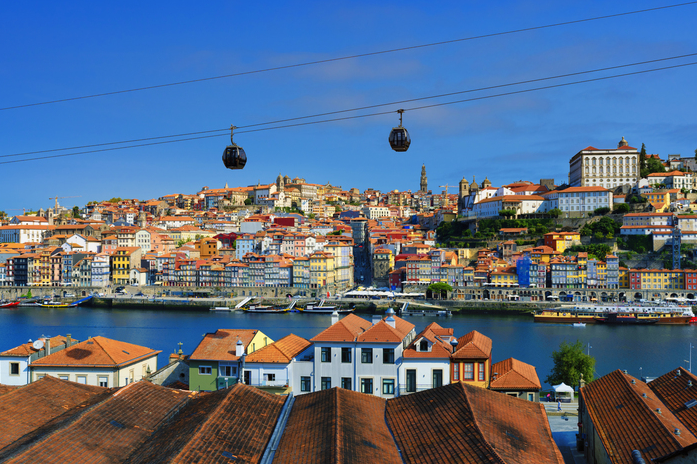Top Investment Strategies for Golden Visa Portugal Applicants
- doursoniy512
- Aug 25, 2025
- 4 min read
Portugal’s Golden Visa program has become one of Europe’s most attractive residency-by-investment schemes. It not only offers the chance to live, work, and study in Portugal but also provides a pathway to permanent residency and eventual citizenship. For savvy investors, it’s more than a gateway to Europe—it’s a smart way to diversify portfolios, protect assets, and enjoy lifestyle perks. If you're considering the Golden Visa, here are the top investment strategies to consider in 2025 and beyond.

Investment Funds – Smart, Regulated, and Flexible
One of the most popular and fast-growing Golden Visa options is investing in regulated Portuguese investment funds. These are typically venture capital or private equity funds that channel capital into Portuguese startups, tech companies, real estate development, or renewable energy.
With a minimum investment of €500,000, this route is appealing because it requires no physical management of property and often comes with potential for high returns. Fund managers are licensed and overseen by Portugal's CMVM (the securities market commission), adding a layer of security. Plus, many funds are structured to meet the five-year Golden Visa timeline, aligning returns and exits with your residency plans. Read More
Real Estate for Tourism or Commercial Use
Although residential real estate in Lisbon, Porto, and most of the Algarve is no longer eligible for Golden Visa purposes, there are still viable property-based strategies. Commercial properties, including hotels, co-living spaces, and office buildings in low-density interior regions, still qualify. Some investors opt for branded hospitality projects or mixed-use developments with guaranteed yields.
These investments typically start at €500,000 (or €350,000 for buildings needing renovation) and offer stable income through tourism and business rentals. It's essential to work with local developers and legal experts to ensure compliance and strong return potential. For those wanting tangible assets, commercial property remains a compelling route.
Investing in Low-Density Areas – Tax Incentives + Eligibility
Low-density regions in Portugal, often inland or on islands like Madeira, are still eligible for Golden Visa real estate investment. These areas offer tax benefits and reduced minimum investment thresholds—€400,000 instead of €500,000, or €280,000 for rehabilitation properties.
These regions are increasingly attractive thanks to eco-tourism and remote work trends. Towns like Évora, Castelo Branco, and some parts of the Douro Valley are seeing sustainable growth. However, proper due diligence is critical. Work with local real estate agents, architects, and lawyers to ensure your project meets visa criteria and has growth potential.
Capital Transfer – Low Maintenance, High Cost
Capital transfer was once the most straightforward way to secure a Golden Visa: deposit €1.5 million into a Portuguese bank account. However, it's not considered the most strategic today. While it satisfies the requirement, it ties up significant capital with little return.
Still, for ultra-high-net-worth individuals looking for minimal obligations, this passive method offers a “set it and forget it” appeal. It's secure and doesn’t involve property or business management—but unless paired with a smart banking or wealth strategy, it’s unlikely to beat inflation or produce meaningful returns.
Job Creation and Business Investment
Creating at least 10 new full-time jobs in Portugal is another Golden Visa path—ideal for entrepreneurs or those expanding business operations into Europe. This strategy involves starting a company or investing in an existing business in Portugal.
Sectors like tech, clean energy, agritech, and tourism are particularly promising. Portugal’s competitive labor costs, quality workforce, and EU access make it an appealing base. However, this route comes with responsibility—HR, compliance, and long-term commitment. It’s not passive, but for those willing to engage with Portugal’s economy, it can be highly rewarding.
Donation or Cultural Investment – The Philanthropic Route
A less common but meaningful route is donating a minimum of €250,000 to support national heritage, arts, or scientific research. This includes funding restoration projects or cultural institutions.
While not a financial investment in the traditional sense, this method appeals to philanthropists or applicants with a strong interest in cultural preservation. It’s also one of the few options under €500,000. Though you won’t get a return, you will be contributing to a long-lasting impact in Portuguese society—and gaining a unique entry point into the community.
Diversified Approach – Balancing Risk and Return
Many Golden Visa applicants choose to diversify by combining two strategies. For example, splitting funds between a regulated VC fund and a small commercial property investment, or pairing a low-density renovation project with a cultural contribution. This reduces risk and spreads exposure across asset classes.
A diversified approach also allows you to balance return potential, regulatory safety, and personal lifestyle goals (e.g., owning a holiday property while benefiting from fund growth). Talk to a licensed financial advisor or immigration expert in Portugal to structure a plan tailored to your risk profile and residency timeline.
Conclusion – Invest Smart, Live Better
The Golden Visa is more than a ticket to residency—it’s a long-term financial and lifestyle decision. Whether you’re chasing high-yield opportunities through investment funds, seeking steady income from tourism properties, or simply wanting a secure, EU-based future, there’s a strategy that fits. Portugal remains an investor-friendly country with political stability, tax incentives, and growing global appeal.
By aligning your Golden Visa investment with your personal and financial goals, you can not only gain residency but also build wealth, contribute to the local economy, and enjoy one of Europe’s most livable countries. As always, due diligence, legal guidance, and local expertise are your best allies in making the most of this opportunity.

Comments